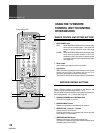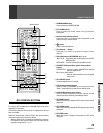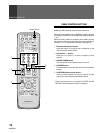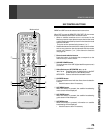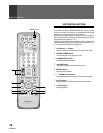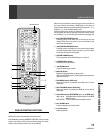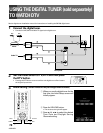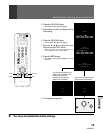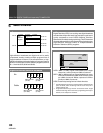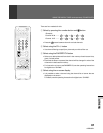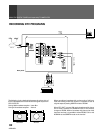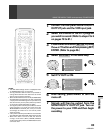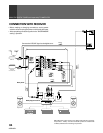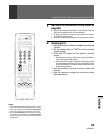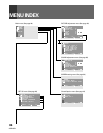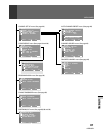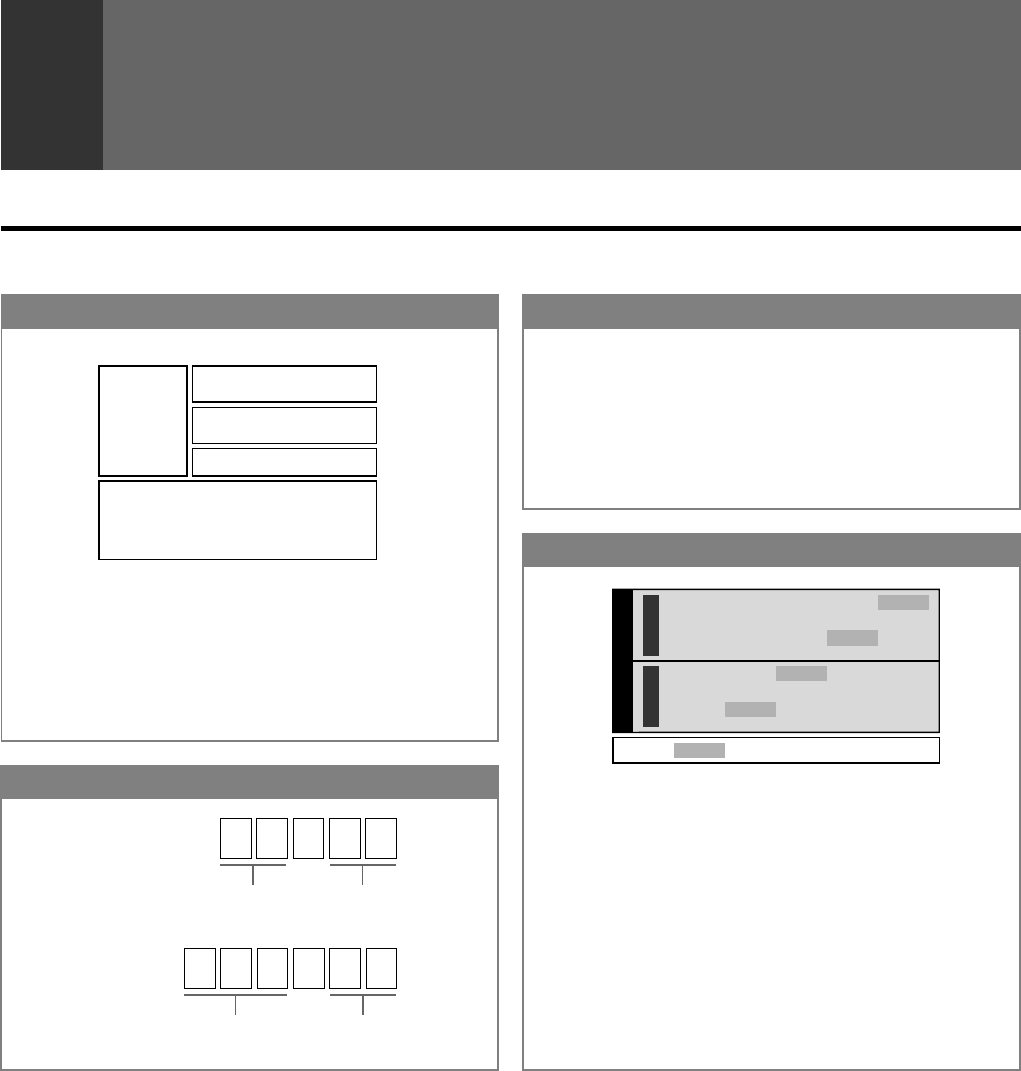
80
<ARB1527>
The above guide is for reference only.
High-definition broadcasts are digital and can be easily
compressed, thereby creating multiple programs from a
single broadcast. As shown in the example above, a high-
definition broadcast can be televised as one program (channel
36.20) or it can be split into three different programs (channel
35 → channels 35.10, 35.40 and 35.80).
Digital broadcast channels
High-
definition
program
Program A
Program B
Program C
High-definition program
10:00am 12:00pm 2:00pm
Ch 35
Ch 36
Ch 35.10
Ch 35.40
Ch 35.80
Ch 36.20
Digital broadcast channel numbers
Digital Television (DTV) is an exciting new digital broadcast
standard that will provide vastly improved picture and sound
quality compared to current NTSC (National Television
Standards Committee) analog technology. The DTV standard
allows broadcasters the choice of transmitting single program
High Definition Television (HDTV) or multiple Standard
Definition Television (SDTV) programs.
Digital television
HDTV: 1080I*
1
or 720P*
2
signal is transmitted over a single
channel at 1 million pixels per 1/60th of a second.
SDTV: 480P or 480I signals can be transmitted over many
channels simultaneously. 480P at half a million pixels
per 1/60th of a second. 480I at a quarter of a million
pixels per 1/60th of a second.
NTSC: Present-day analog format in North America.
*
1
Interlaced Scanning: Picture constructed from interlacing two
pairs of fields, each containing half the scan lines, as in
today’s analog TVs.
*
2
Progressive Scanning: Picture constructed from single
frames containing all the scan lines, progressing from top to
bottom, as in today’s PC monitors.
DTV signals
5
Select a channel.
USING THE DIGITAL TUNER (sold separately) TO WATCH DTV
1080I
1080×1920
720×1280
480×704
480×704
720P
480P
480I
NTSC
H
D
T
V
S
D
T
V
D
T
V
Air
1 0 2
Main channel
(001-999)
. 3 0
Sub channel
(01-99)
Cable
3 5 . 4 0
Main channel
(02-99)
Sub channel
(01-99)



